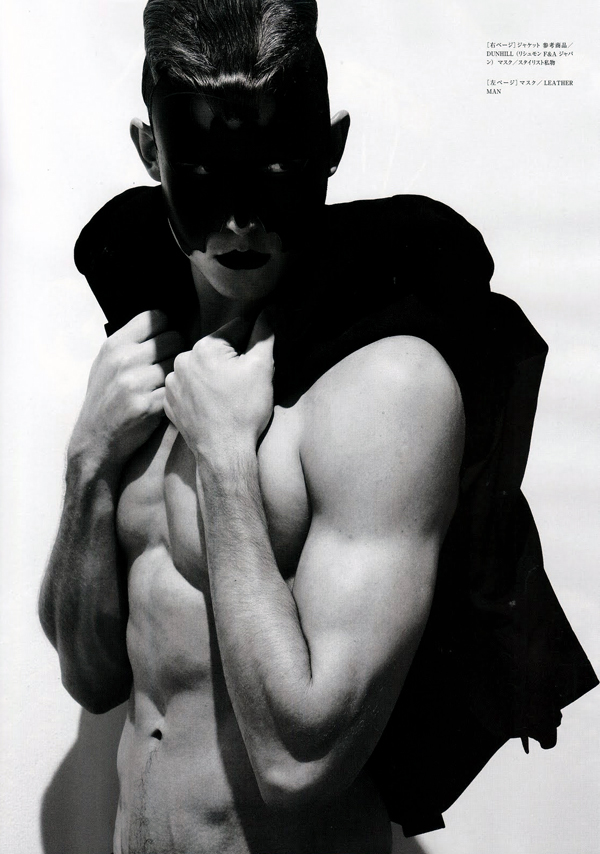
What do you see when you look at this picture? Homoeroticism? Another tired, erotic editorial? Do you see cheap objectification of the male form? The revenge of women's lib? Lust? Admiration and jealousy? Would you like to spit at it?
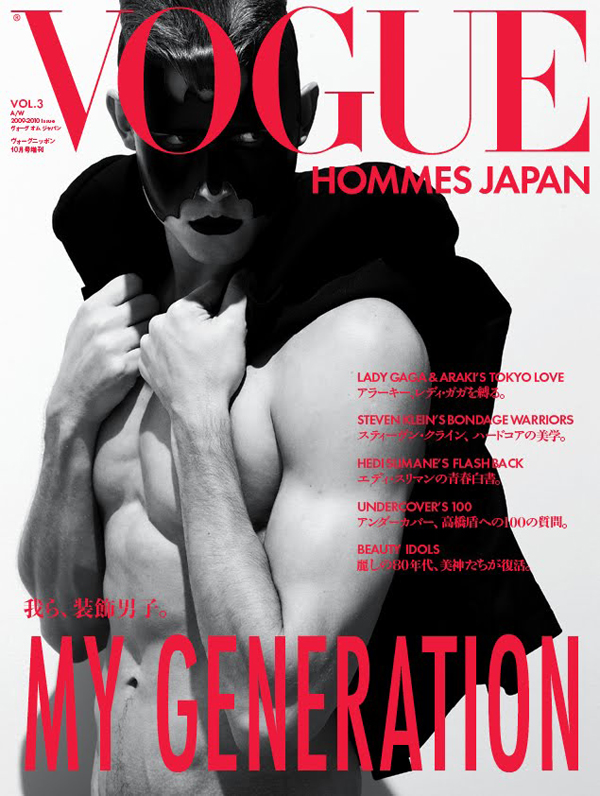
Of course, fashionistas will tell you that the general feeling of uneasiness pictures like this bring is what makes image-making more fun and challenging. They push boundaries, besides the fact that they coincide with the burgeoning of the menswear industry.
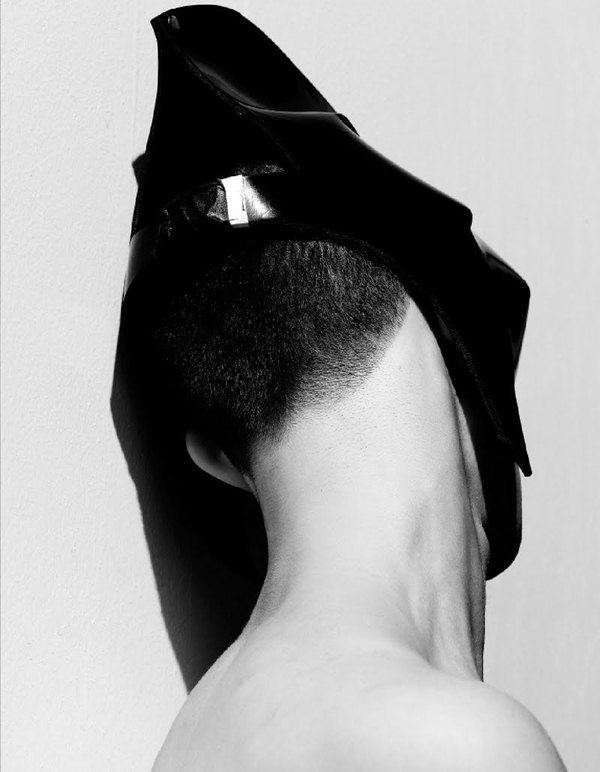
The good thing about these images is that they show beauty from another perspective, which doesn't always have to be charged with sex.
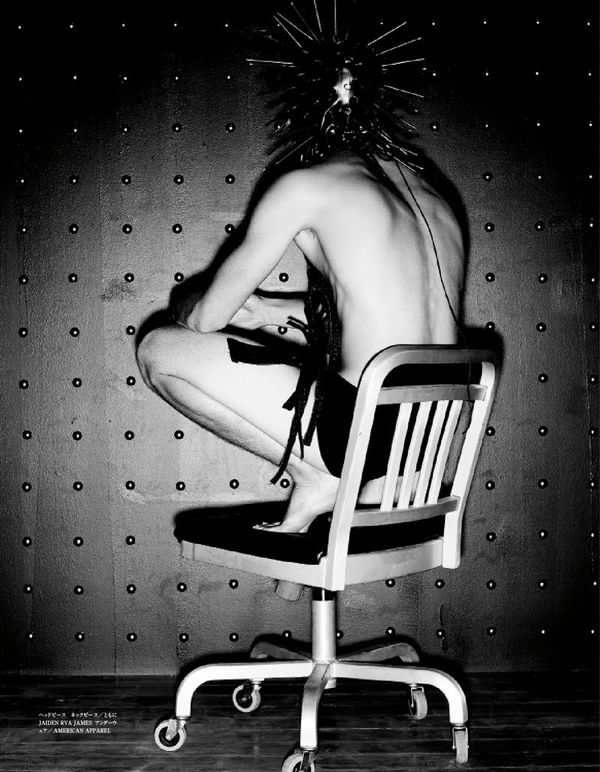
While bondage has been created by men and initially exploited in images of women, I must admit that it is still quite disconcerting to see roles reversed: for the predator to become the prey, though of course this has always been the case in a world without women...

Mind you, I do not find all of these images interesting. Some are already twice removed from "original" (if that is possible) pastiche.

Some I am partial to.
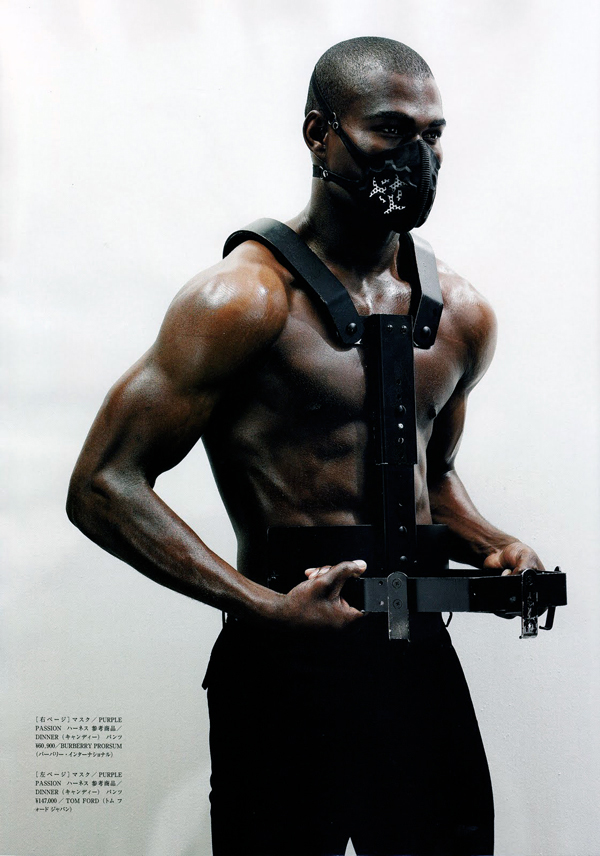
The equation is age-old: man = muscle = animal. The masculine should be harnessed.
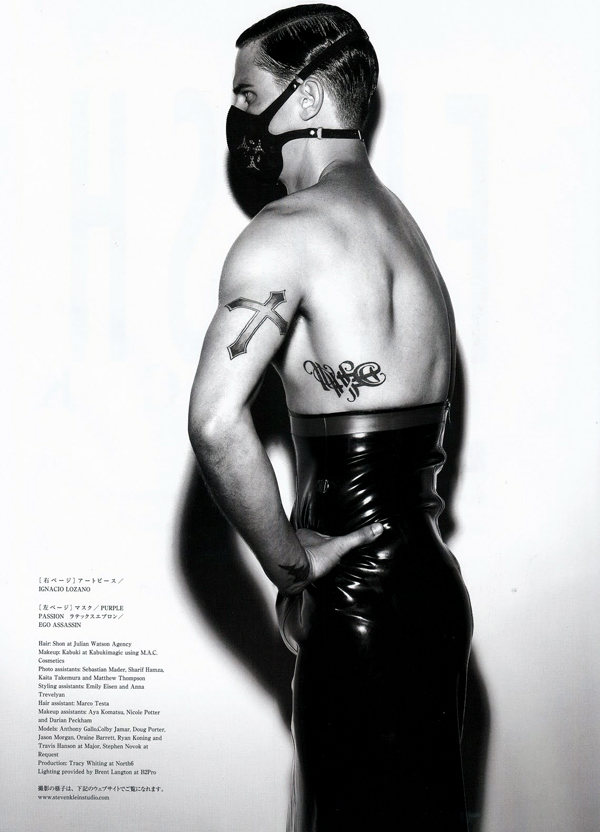
Of course, since that is too convenient, another is adopted: man = woman, therefore harness with a bodice.

I suppose this proposes that rope isn't just for choking; you must also wear it.


This is the best image to tell you what the stylist is really up to: the bride is the groom who comes to mourn his/her own wedding = the man is the woman who refuses to see his own beauty, thus he is shackled.
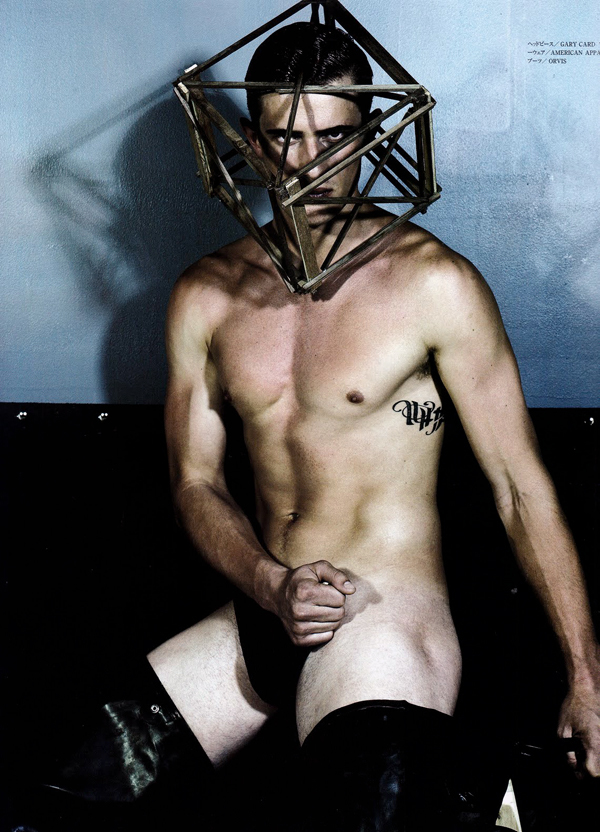
This image, on the other hand, has no point.

This nearly escapes one too, but you can see that he is meant to be a horse.

Bondage is real and its implications are beyond the sexual. Its psychological resonance deep and complex.

That's why editorials like this can be quite disappointing when all stylists and photographers can do is reference over-used images of St. Sebastian (no matter that this one is in a shredded tank and panties).
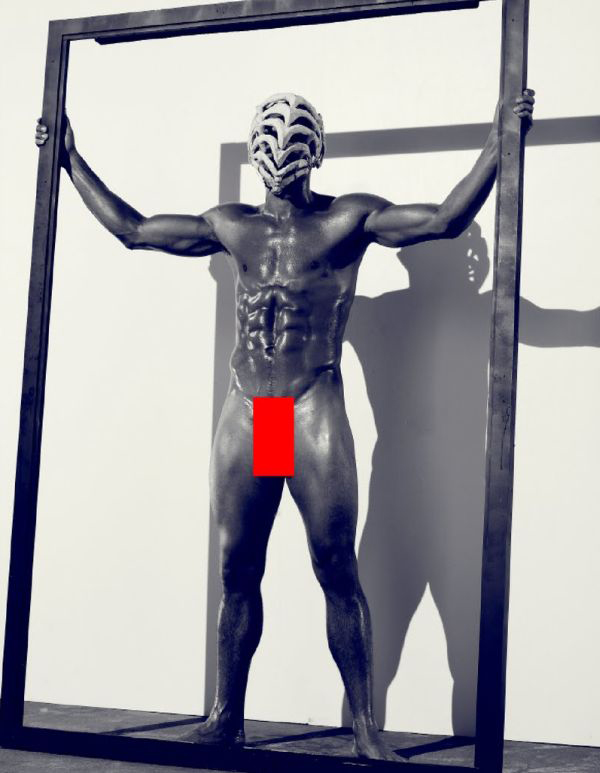
And are these rectangles supposed to be provocative? I understand that the magazine is circulated in Japan, which is not tolerant of such exposure, but the archaic imagery evoked is lost because of the red intrusion. Another pose? Doesn't he make you imagine a goalkeeper in Roman times?

Though this next picture may be a portrait of a senator from the Star Wars Galactic Republic, his eyewear rather looks like something from one of Lavazza's teaspoon posters.


Here is the complete picture of an earlier image. But why the candles?
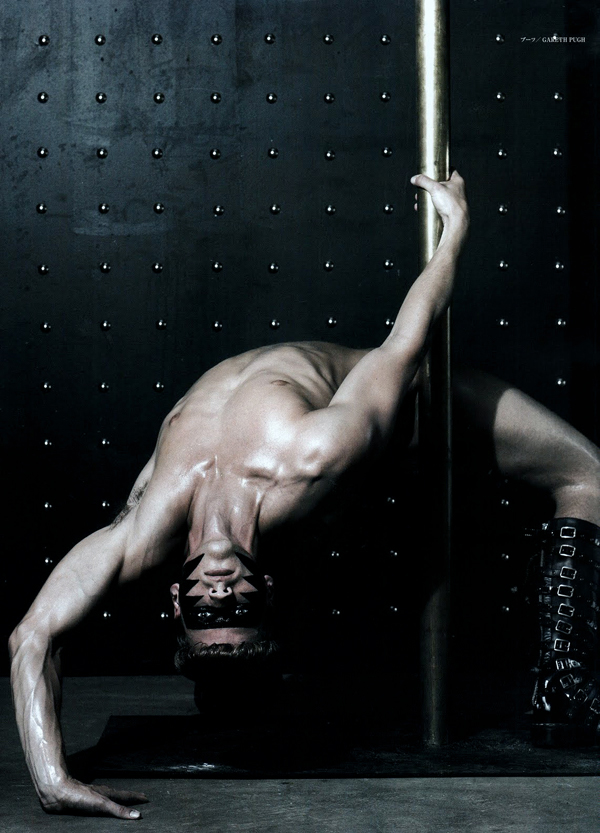
I love the boots.
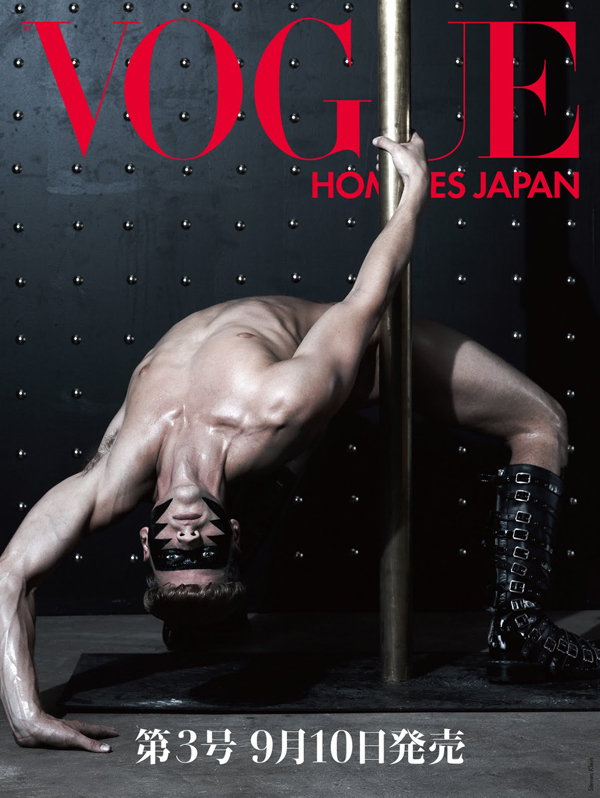
You see how the addition of the Vogue logo changes the image? Besides improving the composition, did the picture suddenly and curiously become "relevant"?
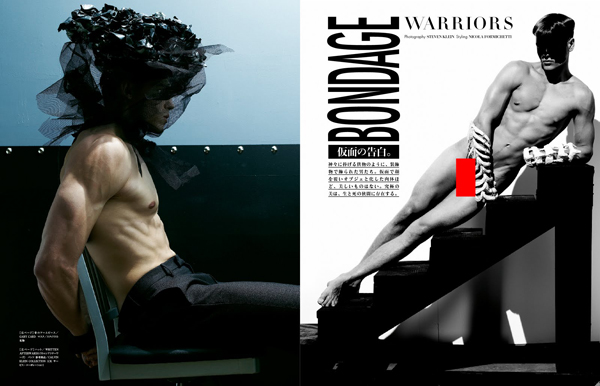
Here's a short recap.
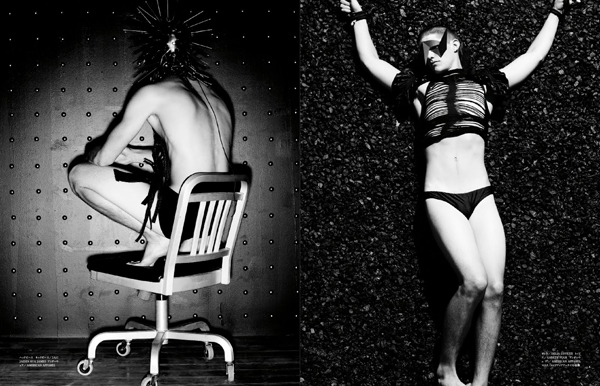


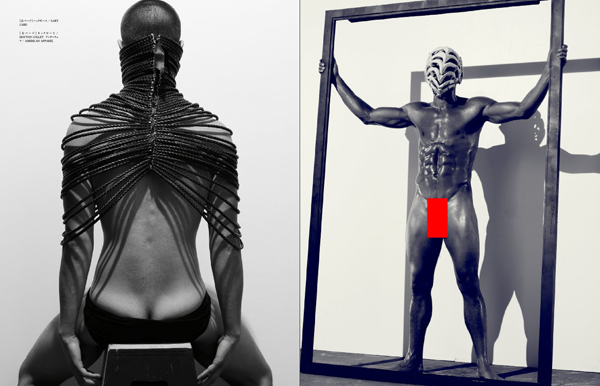
Now it's time for inversion of a different kind.
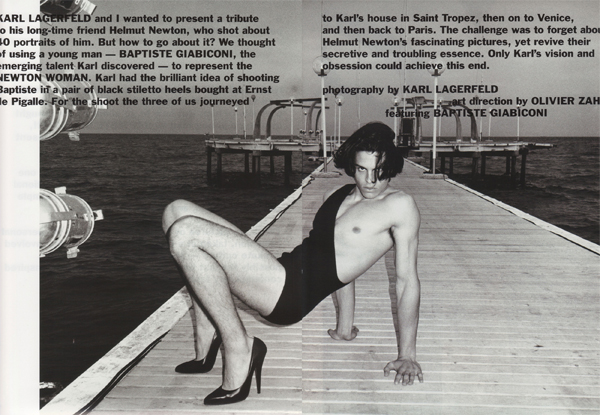
Baptiste Giabiconi, Karl Largerfeld's latest male muse, needs no introduction. Here he his photographed for Purple magazine once again by the designer of Chanel — not just in dresses but also in heels, and nothing else.
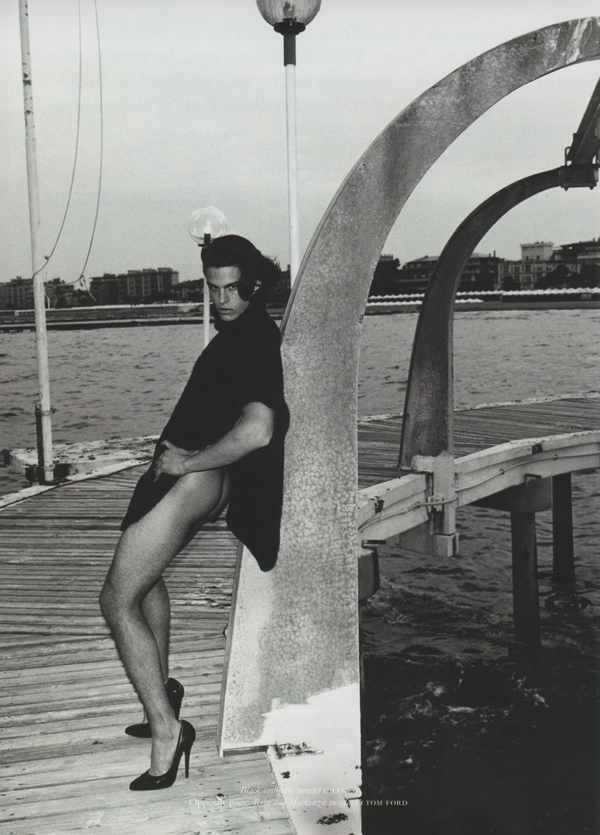
This is more provocative than the first editorial, though some may say that this is certainly not original.

Except for the hair, it seems his legs were made for heels. Agree? Of course it is another thing to reconcile them with the rest of him.


All it takes are heels and some props, like a wineglass, to make you look again. And stare.
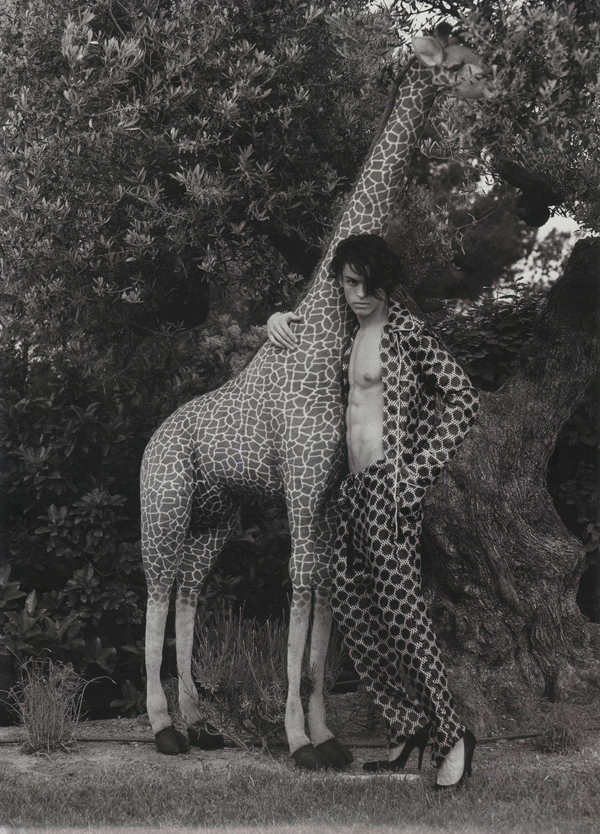
At least Karl Lagerfeld has some sense of humor necessary to keep fashion fun and fresh.

Otherwise, this would be more Gods and Monsters.
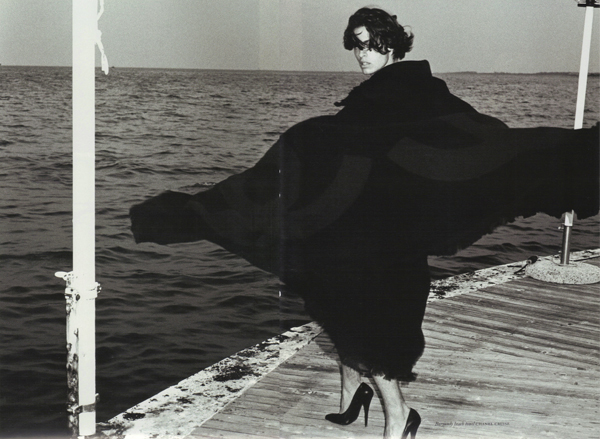
You're supposed to have been won over by now.
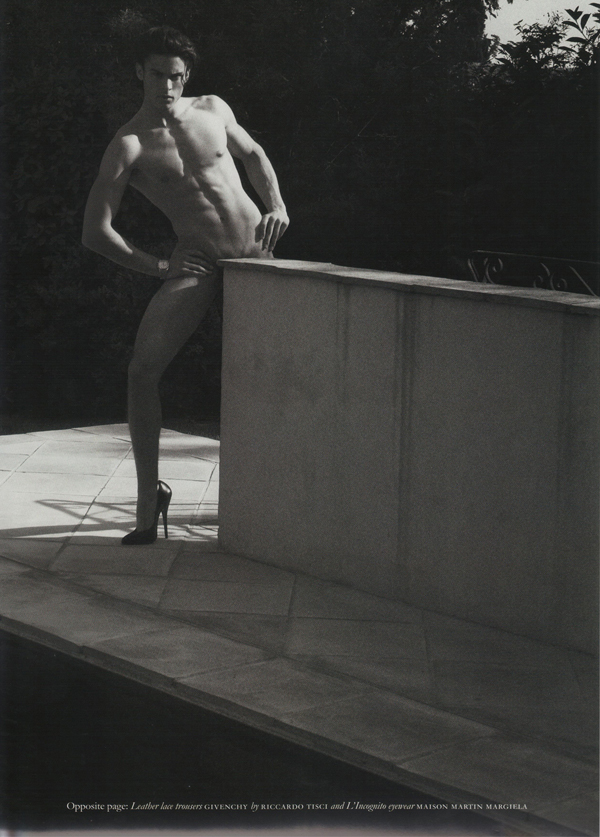
Light-headed enough to be prepared for this.

Or even this.

Well maybe not this, but you get the point.

Beauty is many-sided. It is equivocal.
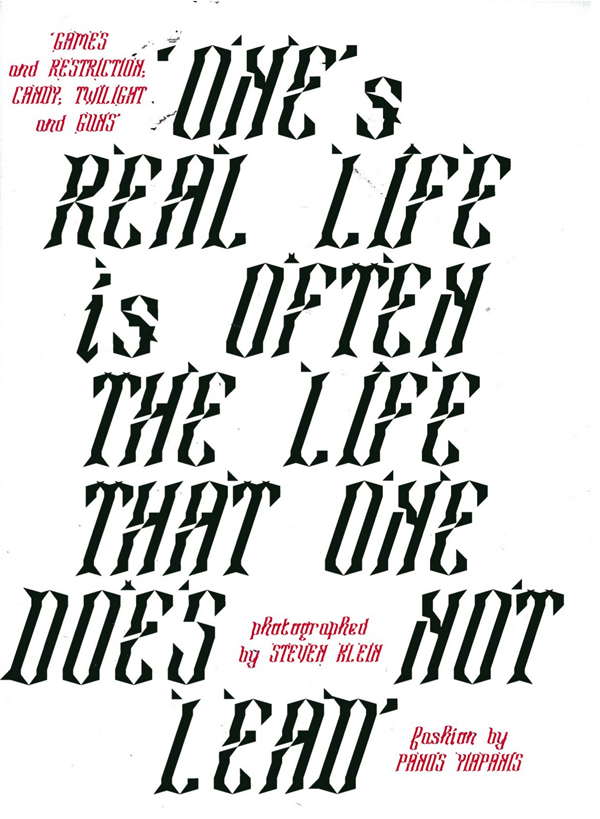
Even if it is terrifying and disturbing.
The quote of course, used as a banner for this Arena Homme Plus editorial, was better stated by Arthur Rimbaud: "Life is elsewhere."

And it is. Given a world of pain, corruption, and violence.

It is easy to see these images as nothing but an excuse for blatant titillation. But it's not. Otherwise all the models would have been naked all the time.
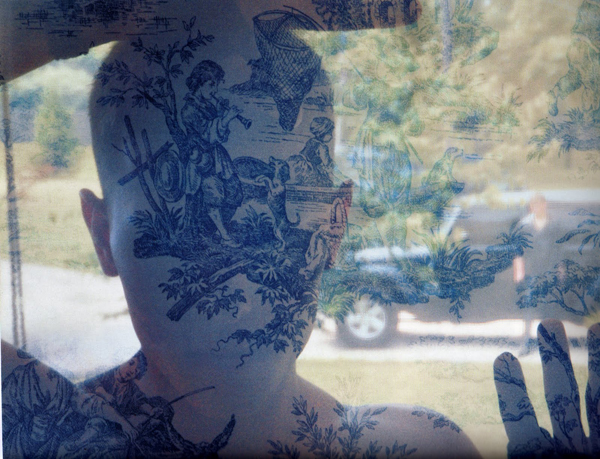
Things are not what they seem. There are layers of meaning.

Outwardly, violence can be seen as an act of pleasure for some, a twisted form of hedonism.

Violence. It is always associated with men, with the male, with masculinity.
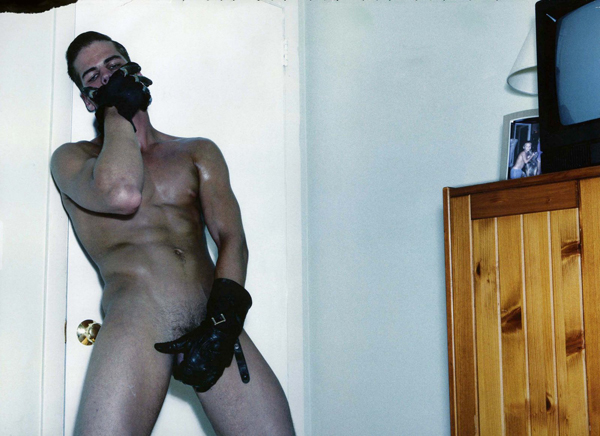
It is physically dictated.

War, the military, torture, humiliation: all inflicted by men.

Who have themselves kept silent about it, kept conflict in.


Sure you see an ass, and many things besides.

Sure you say these images are just meant to sell stuff.

But these images dig deep into the collective psyche, the zeitgeist.

Only artists can represent themes that make the clothes secondary.

Studs and rings and rivets may have been prevalent in various pieces of many labels, but designers have merely responded to what's been happening around.

The truth is still muffled and restrained in a straightjacket.

It is held hostage and strangled.

The pictures here represent recurring events. (This one reminds me of an Italian painting of the great fire in Rome.)

This one is more than just about lace and patterns. It is about fear and confusion.
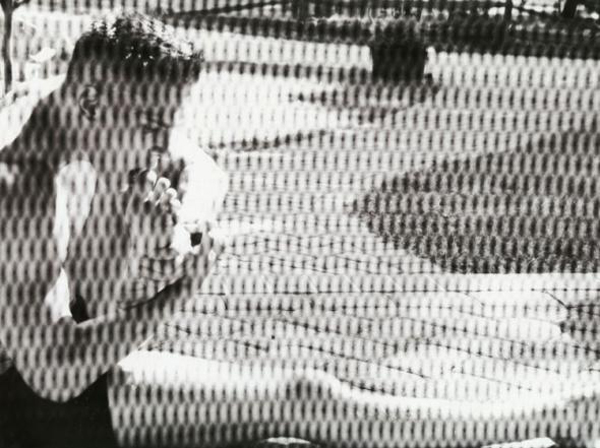
The hazy prospect of peace?

The state as the modern-day inquisitors and crusaders out to persecute their labeled heretics.


The soldier as Mary Shelley's Frankenstein.


War has no endgame.
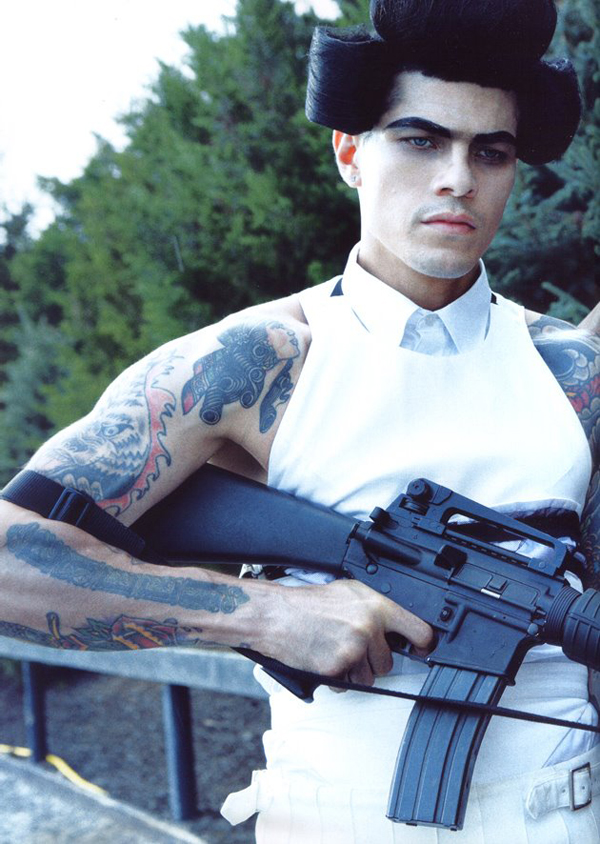
Only munitions and casualties and temporary victors.

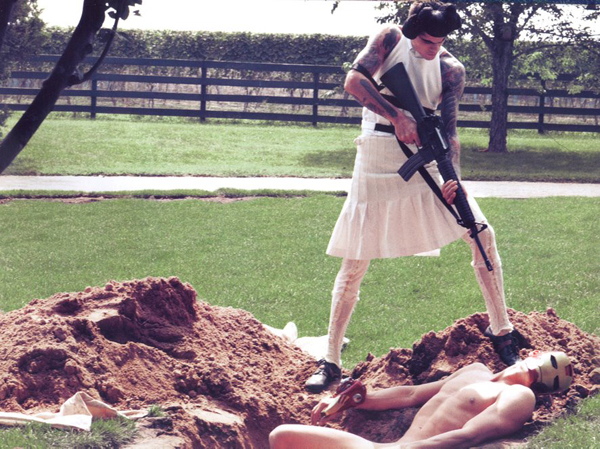
Past crimes cannot be buried.

I bet you're wondering how I'll explain this. I'm sure it's plain fancy.

But the editorial is clever enough to turn things around: violence begins in the home, in one's bedroom.
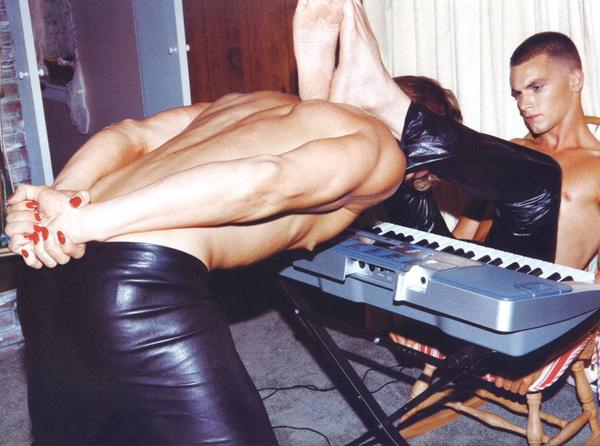

And so did David Bowie, but this is more about the vanity of all of it.

Good and bad, messiahs and demons.
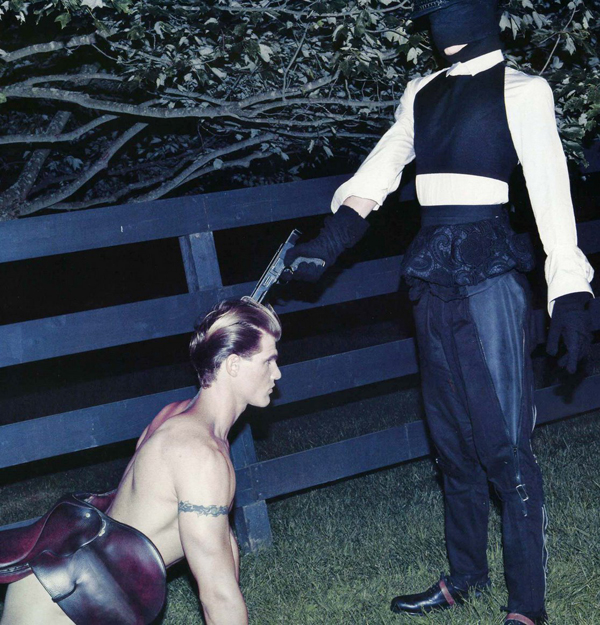
The Animal Farm begins in one's own barn.
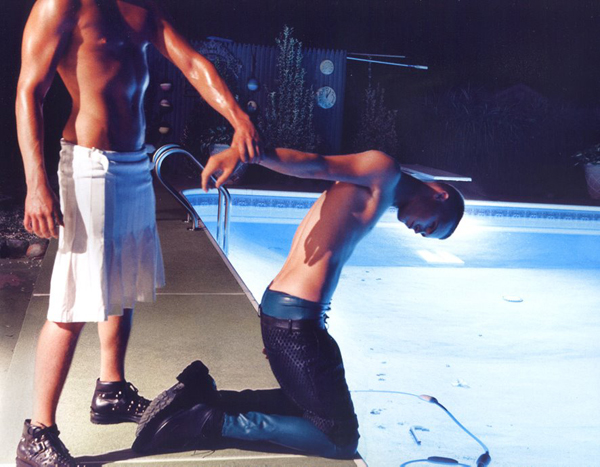
Or yard.
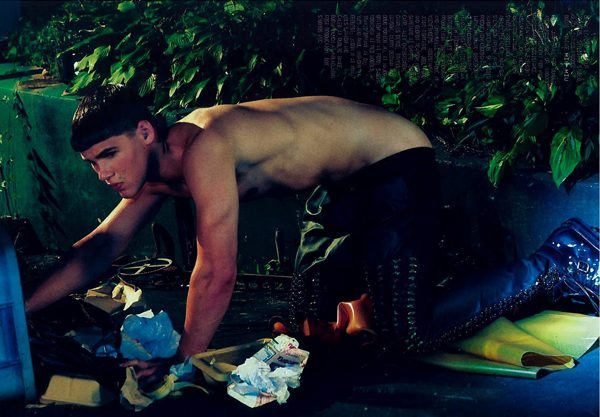
No image is as innocent as it seems.